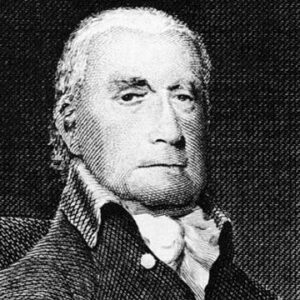Francis Lewis, a businessman and politician who represented New York in the Continental Congress, was one of the 56 signers of the United States Declaration of Independence. He was orphaned at a young age and nurtured by a maiden aunt who ensured he received a good education. He matured into a young man and entered the commercial industry. He traveled far and wide to promote his business, and during one of these trips, he was captured by French forces during the French and Indian War. Years later, when he returned to the colonies, he was given enormous swaths of land as compensation for the years he had spent away. He re-established his firm and retired early to devote more time to politics. Lewis was born in Wales but moved to America when he was a child, and he had a tremendous affection for his adopted motherland. He was a founding member of the Sons of Liberty, a patriotic organization that battled for the protection of colonial rights against the British Empire’s atrocities. He was elected as a delegate to the First and Second Continental Congresses, and he signed the Olive Branch Petition in the hopes of reaching a peaceful agreement with the British government. He freely utilized his riches to push for the issues he believed in.
Childhood and Adolescence
Francis Lewis is the son of Morgan Lewis and Anne Pettingale, and was born in Wales, United Kingdom. By the time he was five years old, both of his parents had perished. He was reared by an erudite and kind maternal aunt who was his maiden aunt.
He had his early schooling in Scotland, where he learned Gaelic, before continuing his study in England. He went to Westminster School, a famous educational institution in the area.
Career of Francis Lewis
After finishing his education, he went to work as an apprentice at a London mercantile firm.
He acquired various possessions left by his father when he reached the age of 21. In 1734, he turned the holdings into commerce and moved to New York.
He handed a portion of the stuff to his business partner Edward Annesley in New York, while he travelled to Philadelphia to sell the rest. After two years, he returned to New York.
He traveled to many remote locations as a businessman, including Africa, Scotland, and Europe.
During the French and Indian War, he created a thriving business and won a contract to sell clothing to the British. He was there at Fort Oswego when it was attacked by French soldiers in August 1756. Lewis, along with others, was kidnapped and deported to France.
After seven years in captivity, he was released and returned to the American colonies in 1763 as part of a prisoner exchange. The British government compensated him with 5,000 acres of land in New York in exchange for the years he had lost.
He re-established his firm and quickly amassed a big fortune, ever the savvy businessman. Around this time, he was also developing a strong interest in politics.
He was extremely wealthy and prosperous by the time he was 52 years old in 1765. He gave up his business in order to become more involved in politics.
He was initially a Royalist supporter, but with the passage of the Stamp Act in 1765, he altered his mind. He went to the Stamp Act Congress to protest the British government’s taxation policy.
He was a founder member of the Sons of Liberty, an organization of American patriots who challenged the British government’s irrational policies.
In May 1774, the Committee of Fifty was created to protest the closure of Boston’s harbor. The Committee of Fifty-one was formed after Lewis joined the group.
In 1775, he was elected as a delegate to the First and Second Continental Congresses to represent New York. His commercial experience made him a valued member of Congress, and he was very generous with his considerable riches when it came to advocating for political reasons.
In July 1775, he signed the Olive Branch Petition, an attempt by the Continental Congress to strike an agreement with the British government and prevent a full-fledged war.
The American Revolution was well underway by 1776, with patriots from the thirteen colonies demanding independence from British control. Lewis and other New York delegates were unable to vote for independence on July 2nd due to a lack of communication from the New York Provincial Congress.
The 12 other states voted overwhelmingly in favor of independence, and the New York delegation was given permission to participate alongside the other colonies. He, along with many others, signed the Declaration of Independence on August 2, 1776.
He signed the Articles of Confederation, the first constitution of independent America, in 1778. In 1781, he left the civil service.
Major Projects of Francis Lewis
He is most known for being one of the 56 signers of the United States Declaration of Independence (1776), as well as one of the 16 signers who also signed the Articles of Confederation in 1781.
Personal History and Legacy
Lewis married Elizabeth Annesley, the sister of Edward Annesley, his business partner, in 1745. Only three of the couple’s seven children survived to adulthood.
After the Battle of Brooklyn in 1776, British forces kidnapped Elizabeth Lewis. She was imprisoned in horrible conditions for months before being liberated. In 1779, she passed away.
He died on December 31, 1802 at the age of 89, after spending his last years contentedly with his children and grandchildren.
Estimated Net Worth
Francis is one of the wealthiest politicians and one of the most well-known. Francis Lewis’ net worth is estimated to be $1.5 million, according to Wikipedia, Forbes, and Business Insider.
Trivia
Anna Cora Mowatt, an author and dramatist, was his great granddaughter.
Francis Lewis High School in New York is named after him.


